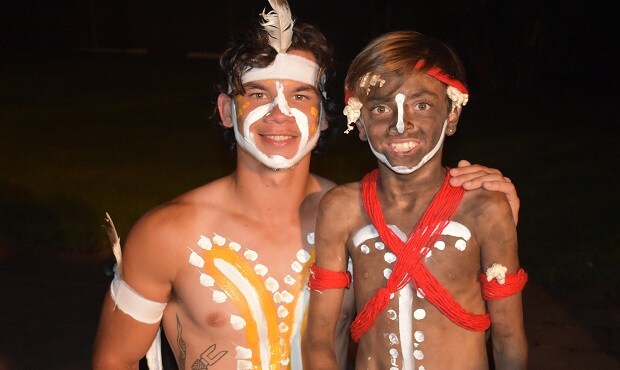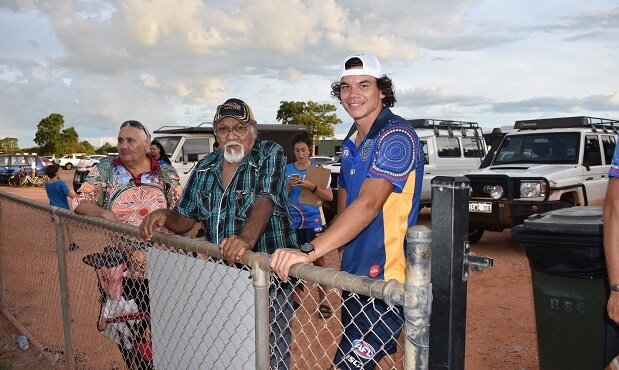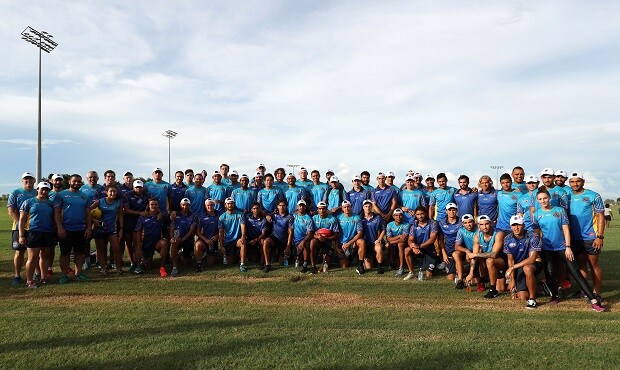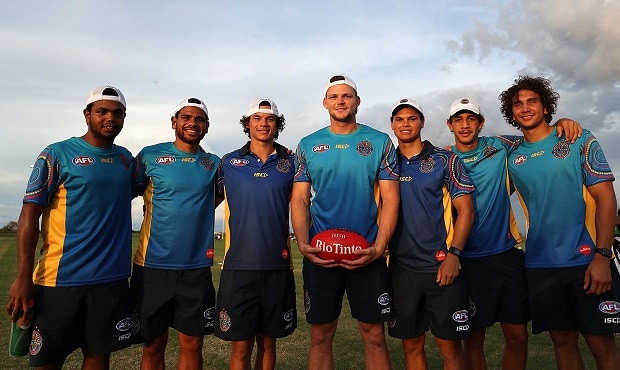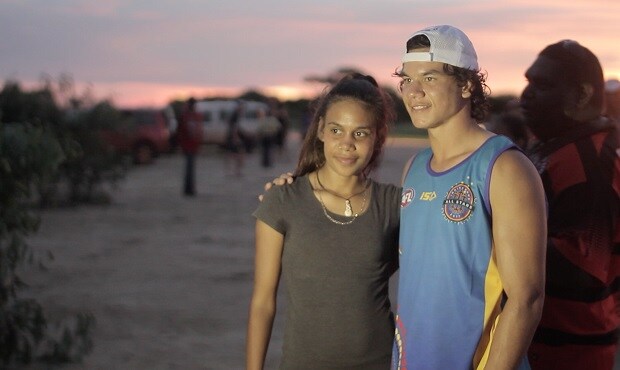Richmond players Daniel Rioli, Shane Edwards, Nathan Drummond, Shai Bolton and Tyson Stengle attended the bi-annual AFL/AFLPA Indigenous All-Stars camp in Broome last week.
The group of Tigers were among 55 Indigenous players who took part in the camp from Wednesday, February 1 to Saturday, February 4, which focused on personal and cultural development as well as industry education.
The camp provided a unique opportunity for Indigenous footballers to bond through player-led cultural development sessions, football training and traditional activities with local communities, such as fishing and dancing.
The cultural development sessions identify and discuss the particular dynamics of AFL and club culture and the intersection with Indigenous people’s lives.
Other player-led sessions looked at the expectation of clubs, the industry and the community and how the AFL and the AFLPA can work collaboratively to best cater for Indigenous players.
Club Player Development Managers and football operations staff also attended the camp, to absorb some of the cultural discussions.
AFLPA CEO, Paul Marsh, said the camp provided a great opportunity to get players from across the country, and covering varying demographics, together to explore ways to better maximise their time in the game.
“The camp will provide all Indigenous players the opportunity to not only connect with culture, but to further educate the industry about what we can be doing better to support past, present and future Indigenous players,” Marsh said.
“It’s a priority for the AFLPA Indigenous Advisory Board that the AFL industry is working together as a whole to support Indigenous players and their families, from the minute they are drafted and well into retirement.”
AFL General Manager Inclusion and Social Policy, Tanya Hosch, said the camp was a unique occasion for the AFL’s Indigenous players to come together in a culturally appropriate setting ahead of the 2017 season.
“The AFL/AFLPA Indigenous All Stars camp aims to support the personal and professional development of our Indigenous players and enable their engagement with the Aboriginal people of the Kimberley region,” Hosch said.
“We have worked with our players to ensure the camp has a strong cultural focus and celebrates and strengthens their cultural identity.
“Our game is the number one choice sport for many Indigenous Australians across the country and to see 15 per cent of all players drafted last year identify as Indigenous men shows the strong links between football and Indigenous people.
“We hope all of these footballers continue to enhance their leadership capacity and continue the legacy of great Indigenous footballers who have laid the foundations for their success.”
